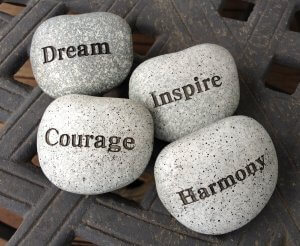Are you going through a difficult time? Are considering counselling as a solution for you or someone you know? I understand seeking therapy can feel daunting, and perhaps you’re not sure if it’s the right step. The good news is counselling can help with many difficulties, and as a trained counsellor I’ve seen first-hand how it improves lives.
To help you decide whether it’s the right choice for you, I’ll explain how counselling can benefit you, and what to expect during your first session.
What is counselling?
When you go to counselling, you’re invited to talk through your problems with a trained therapist. It’s sometimes called ‘talking therapy’. The therapist will listen attentively to whatever you need to discuss. He or she will never judge you, but will always seek to understand your point of view.
Everything you say during counselling is confidential so you’re free to talk openly. The therapist won’t tell you what to do, but will offer insights and observations to help you understand your feelings. Over time, you begin to recognise and change unhelpful patterns of thought or behaviour.
Often people struggle in silence because they think their problems aren’t severe enough to deserve getting help. But actually counselling can help with a wide range of issues. Whoever you are, and whatever has happened in your life, you do have the right to get counselling.
Counselling is usually held face-to-face in a quiet setting. But you can also attend group sessions. Online and telephone counselling options are becoming more popular and can be a good alternative if you find it difficult to travel.
Why is counselling so effective?
Many of us have busy lives, under pressure to succeed at work or to take care of others. You might feel unable to express your feelings in front of family or friends because you don’t want them to worry. Often we feel pressure to be ‘OK’ and bottle up our feelings because we don’t want to distress others, or be judged for not coping.
Having this time set aside just for you can very helpful. Some people find they feel a little better straightaway when given the space to talk openly.
And as you get clarity about why you feel the way you do, you also begin to accept these feelings, and discover new ways to cope with them.
In this way counselling doesn’t just help you with a specific problem, it can improve your overall well-being, help you become happier – and cope with new challenges, too.
What issues does counselling help to resolve?
Counselling is effective for resolving many issues, including mental health problems, difficult emotions, distress caused by physical illness, and upsetting or traumatic experiences.
A counsellor will seek to understand how issues impact you as an individual, rather than focussing on the issues themselves. This means you can resolve the underlying cause of your distress instead of just treating the symptoms.
Maybe you have a deep-seated feeling that something is wrong, but you’re not sure why. Counselling will help you identify the reason your distress.
Some issues that counselling help you recover from include:
- Anxiety
- Depression
- Abuse
- Low self-esteem
- Sexual assault
- Bereavement
- Stress
What happens during a counselling session?
A counselling session usually lasts for 50 minutes or an hour. Your counsellor will suggest a certain number of sessions to start with, and you can review this together later on. Because it’s important you feel comfortable with your therapist, your first session is a friendly chat so you can get to know each other.
During the first session you can explain what you’d like to achieve from counselling, and the therapist will explain how he or she will help and show you guidelines, so you’re clear about how the therapy will work.
It’s perfectly natural to feel a bit nervous at first but your therapist will put you at ease. Your sessions won’t end abruptly either; the therapist will let you know when you’ve a few minutes left so you’ve time to collect your thoughts.
You might start by talking about what’s troubling you now, and as the sessions progress you might find yourself talking about your relationships with others, or old memories.
Sometimes the counselling process can be difficult, as intense feelings or memories can rise to the surface. The therapist is trained to support you through these intense feelings, and he or she will help you come to terms with them.
By getting things out in the open, and with the counsellor’s insights you can gain a new perspective on your life. You begin to discover the inner strength you possess to overcome your difficulties.

I hope this has helped you learn a little more about counselling, and whether it’s right for you. If you’d like to find out more, you’re very welcome to get in touch with me.
Get in touch
I’m a qualified counsellor and hypnotherapist, and I’m here to help if you’re having a difficult time. I offer face-to-face counselling in Manchester city centre, and online or telephone counselling across the UK.
If you feel you would benefit from counselling or need someone to talk to, please feel free to get in touch.
Helpful links
The counselling directory – to search for counsellors in your area; also helpful articles on mental health.
NHS counselling – for information on counselling via the NHS
BACP – this is the professional association for counsellors, which has a directory so you can search for accredited members in your area.
The Samaritans – Is a free helpline staffed by trained volunteers who listen and offer support, whatever’s distressing you. It’s open 24 hours.
